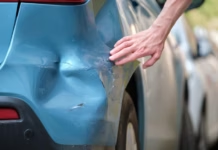Dominic Watt, a motoring expert at First Vehicle Leasing, wants to warn Brits of the ongoing social media scams, tricking victims into thinking they’re eligible for compensation, but in reality are scamming customers out of thousands of pounds.
In light of the ongoing aftermath of the ‘Dieselgate’ scandal that erupted in 2015, many diesel vehicle owners in the UK find themselves potentially eligible for compensation. This scandal primarily revolved around car manufacturers installing ‘defeat devices’ that manipulated emissions tests to meet legal standards, only to significantly exceed these limits under normal driving conditions.
These scammers often use social media platforms to reach potential victims, offering to help them claim compensation through deceptive means. Here are key points to consider and tips on avoiding these scams.
Recognising Social Media Scams
Unsolicited Offers: Be wary of unsolicited messages or advertisements claiming to offer easy compensation claims. Legitimate law firms and claims services typically do not reach out to potential clients through direct messages on social media.
Too Good to Be True Promises: Scammers may promise guaranteed compensation or unusually high payout amounts with little to no proof or requirement from your side. Remember, if something seems too good to be true, it probably is.
Requests for Upfront Fees: Any request for payment upfront should be considered a red flag. Legitimate legal services for compensation claims usually operate on a ‘no win, no fee’ basis, where they only collect a fee if the compensation claim is successful.
Demand for Personal Information: Be cautious of any requests for sensitive personal or financial information over social media. Scammers might use this information for identity theft or unauthorised transactions.
Tips to Avoid Social Media Scams
Verify the Source: Before engaging with any service offering to help with diesel emissions claims, research the firm or individual to verify their legitimacy. Look for reviews, check their website, and ensure they are authorised by relevant regulatory bodies.
Use Official Channels: If you believe you’re eligible for compensation, contact a reputable law firm directly through their official website or phone number, rather than responding to social media solicitations.
Educate Yourself: Familiarise yourself with how the compensation claim process works and what legitimate offers might look like. The more you know, the less likely you are to fall for a scam.
Report Suspicious Activity: If you encounter a potential scam, report it to the social media platform and consider alerting authorities if you’ve shared any personal information. This can help prevent others from falling victim to the same scam.
Dom Watt, motoring expert at First Vehicle Leasing says:
By staying vigilant and informed, you can protect yourself from falling victim to social media scams related to diesel emissions compensation claims. Always prioritise safety and privacy, and when in doubt, seek advice from trusted sources before proceeding with any claims process

| [donate]
| Help keep news FREE for our readersSupporting your local community newspaper/online news outlet is crucial now more than ever. If you believe in independent journalism,then consider making a valuable contribution by making a one-time or monthly donation. We operate in rural areas where providing unbiased news can be challenging. |




















Simplifiez votre choix avec Inventonslemondedapres,le comparateur qui révèle les casinos en ligne vraiment performants
!